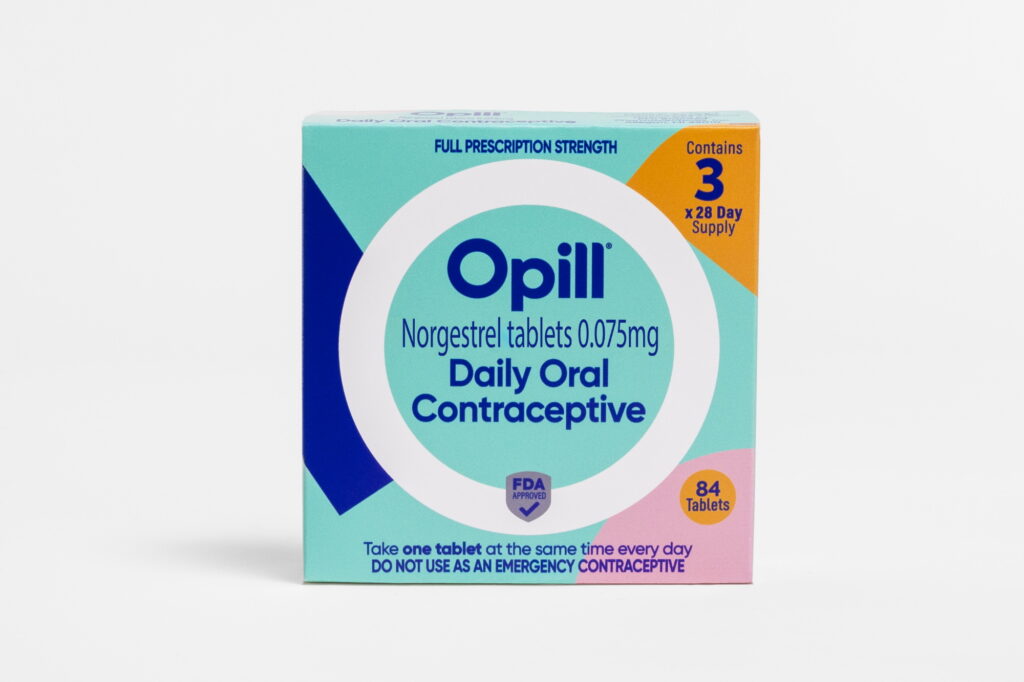Post-Roe America: How OTC Birth Control Is Reshaping Reproductive Healthcare

Table of Contents
Increased Accessibility and Affordability of Birth Control
The impact of removing prescription requirements for certain forms of birth control is profound. Making birth control readily available without a doctor's visit dramatically increases accessibility and affordability.
The Impact of Removing Prescription Requirements
This shift has several key implications:
- Reduced healthcare costs: Eliminating the need for doctor visits and prescriptions significantly lowers the financial burden for individuals, leading to reduced overall healthcare expenditures. The cost of prescription birth control can be prohibitive for many, particularly low-income individuals.
- Improved adherence: Easier access translates to better adherence to birth control regimens. When obtaining birth control is simpler and less expensive, individuals are more likely to use it consistently, leading to more effective contraception.
- Decreased reliance on doctor visits: This frees up time and resources for both patients and healthcare providers, allowing doctors to focus on more complex health concerns. The administrative burden associated with birth control prescriptions is substantial.
- Potential impact on unintended pregnancies and abortions: Increased access to effective contraception is directly linked to a reduction in unintended pregnancies, potentially leading to a decrease in the need for abortion services. Studies consistently show a correlation between access to contraception and lower abortion rates.
Specific examples of OTC birth control options currently available or in development will further demonstrate the impact of this change on access. For instance, the availability of certain types of emergency contraception over-the-counter has already demonstrably reduced rates of unintended pregnancies in many areas. Data from these regions should be analyzed to assess the overall effect.
Empowering Individuals and Reducing Healthcare Disparities
Over-the-counter birth control has the potential to be a powerful tool in reducing healthcare disparities and empowering individuals to make informed decisions about their reproductive health.
Expanding Access for Underserved Communities
For populations facing significant barriers to healthcare, such as those in rural areas, low-income individuals, and communities of color, OTC birth control offers a lifeline.
- Improved reproductive health outcomes: Easier access to birth control directly improves reproductive health outcomes in underserved communities, leading to fewer unintended pregnancies and related health complications.
- Reduced health disparities: By removing financial and logistical barriers, OTC birth control helps level the playing field and reduces disparities related to unintended pregnancies and related complications.
- Increased autonomy: Access to OTC birth control empowers individuals to take control of their reproductive health, fostering autonomy and self-determination.
The impact of geographic location, socioeconomic status, and race/ethnicity on access to reproductive healthcare is well-documented. By eliminating the need for a doctor's visit and prescription, OTC birth control can mitigate these disparities substantially. Targeted outreach programs in underserved communities are crucial to ensure awareness and access to these options.
The Role of Pharmacies and Healthcare Providers in the Transition
Pharmacists and other healthcare professionals play a vital role in ensuring the safe and effective use of over-the-counter birth control.
Educating Consumers about OTC Birth Control Options
Effective education is critical for the successful implementation of wider OTC birth control access.
- Importance of pharmacist counseling: Pharmacists are ideally positioned to provide crucial counseling and education to consumers, answering questions and addressing concerns.
- The need for clear information: Clear, accessible information in multiple formats (written materials, videos, etc.) is essential for patients to make informed choices about their birth control method.
- Enhanced patient-provider communication: The transition to OTC birth control can foster better communication and trust between patients and healthcare providers, leading to more personalized reproductive healthcare.
Many pharmacy chains and professional organizations are already implementing initiatives to enhance patient education on OTC birth control. However, ensuring that this education is culturally competent and reaches all populations is crucial for equitable access. Addressing potential language barriers and health literacy challenges should be a primary focus.
Ongoing Debates and Challenges Surrounding OTC Birth Control
While the benefits of over-the-counter birth control are significant, it’s important to acknowledge potential concerns and challenges.
Concerns about Safety and Misinformation
Concerns exist regarding the potential for incorrect usage and the spread of misinformation.
- Addressing incorrect usage: Public health campaigns focusing on proper usage and addressing potential side effects are crucial to mitigate the risks associated with incorrect use of over-the-counter birth control.
- Combating misinformation: Active efforts are needed to counter misinformation spread through social media and other channels, ensuring that individuals have access to evidence-based information.
- Continued monitoring and research: Ongoing monitoring and research are essential to evaluate the long-term impact of increased access to OTC birth control and to adapt strategies as needed.
Specific risks associated with certain types of birth control must be clearly communicated, and strategies to minimize these risks, such as comprehensive education and readily available medical resources, must be put in place. The role of responsible media reporting and fact-checking websites in combating online misinformation cannot be understated.
Conclusion
Increased access to over-the-counter birth control is significantly impacting reproductive healthcare access, affordability, and equity in post-Roe America. While challenges remain regarding safety and misinformation, the potential benefits—improved access, reduced disparities, and increased individual autonomy—are substantial. To ensure the successful integration of OTC birth control, we must prioritize patient education, address concerns about safety and misuse, and advocate for policies that guarantee equitable access to reproductive healthcare for all. Learn more about over-the-counter birth control options and discuss your needs with your healthcare provider. The future of reproductive healthcare in a post-Roe landscape hinges on ensuring that everyone has access to safe and effective birth control, and over-the-counter options are a critical component of this future.

Featured Posts
-
 Canadas Election 2023 Ignoring The Trump Factor
Apr 25, 2025
Canadas Election 2023 Ignoring The Trump Factor
Apr 25, 2025 -
 571 Millions De Dollars Et Une Suite Le Film Fantastique De 2024 Accueille Une Star De Stranger Things
Apr 25, 2025
571 Millions De Dollars Et Une Suite Le Film Fantastique De 2024 Accueille Une Star De Stranger Things
Apr 25, 2025 -
 Is Betting On The Los Angeles Wildfires A Sign Of The Times
Apr 25, 2025
Is Betting On The Los Angeles Wildfires A Sign Of The Times
Apr 25, 2025 -
 Jack O Connell Cast In Godzilla X Kong Sequel
Apr 25, 2025
Jack O Connell Cast In Godzilla X Kong Sequel
Apr 25, 2025 -
 Actors And Writers Strike The Full Impact On Hollywood
Apr 25, 2025
Actors And Writers Strike The Full Impact On Hollywood
Apr 25, 2025
Latest Posts
-
 Does Makeup Damage Your Skin Separating Fact From Fiction
Apr 25, 2025
Does Makeup Damage Your Skin Separating Fact From Fiction
Apr 25, 2025 -
 Su 7 Ultra
Apr 25, 2025
Su 7 Ultra
Apr 25, 2025 -
 Makeup And Skin Health Understanding The Risks And Benefits
Apr 25, 2025
Makeup And Skin Health Understanding The Risks And Benefits
Apr 25, 2025 -
 Nhung Buc Anh Voi La Mat Trong Bua Tiec Buffet
Apr 25, 2025
Nhung Buc Anh Voi La Mat Trong Bua Tiec Buffet
Apr 25, 2025 -
 Is Makeup Harmful To Your Skin A Dermatologists Perspective
Apr 25, 2025
Is Makeup Harmful To Your Skin A Dermatologists Perspective
Apr 25, 2025
